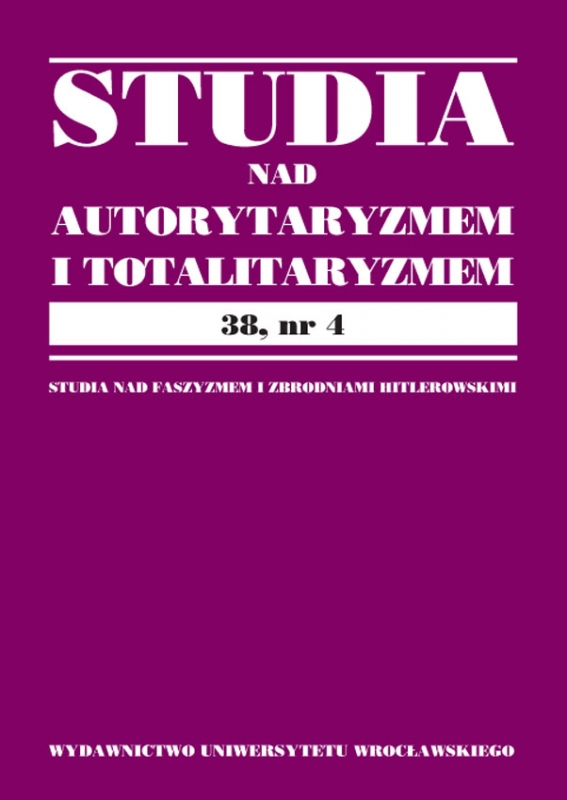

Artykuły

TOTAL NEGATION OF THE INTELLIGENTSIA. IDEAS BY JAN WACŁAW MACHAJSKI AND MICHAŁ BAKUNIN
The article begins with a discussion on the main views expressed in the literature concerning the origins, the essence of the intelligentsia and its features. Against that background, it reconstructs a critical understanding of the intelligentsia as a social stratum as expressed by Bakunin and Jan Wacław Machajski. Both were the representatives of the radical, leftist thought of the 19th and the turn of the 19th and 20th century. It is indicated that neither of them defines the intelligentsia in their writings. They commonly use the term intellectual worker, which is quite accurately described.
The issue of the intellectual worker and, more broadly, the intelligentsia, is clearly part of the doctrine of Bakunin. It is also important in the thought of Jan Wacław Machajski. They were both representatives of the intelligentsia in the sense of their social status. Both supported the instrumental perception of the intelligentsia as a specific social group. The path of intellectual development and political activity of both writers and political activists, which led them to extreme revolutionary radicalism, was evolutionary. It led through a fascination with different, often conflicting, ideologies at various stages in life, eventually aiming at that radical revolutionary attitude. The political thought in both cases was dynamic and subject to evolution. Both lived in literary and political circles. They considered their intellectual and political activity as a kind of liberation mission aimed at the enslaved society. They expressed similar views concerning the function of the intelligentsia both in terms of its social and political role in exploited and enslaved societies and, above all, its ambiguous place in the future revolution. Bakunin formulated anti-intellectual and anti-intelligentsia proposals, whereas Machajski — mainly anti-intelligentsia ones. The possible thesis about the identity of the anti-intellectualism and anti-intelligentsia seems to be at least questionable. Insofar as Machajski’s concept of the intelligentsia only has a political aspect based on the Marxist phraseology, Bakunin’s previous ideas and his anti-intellectualism have a mainly philosophical, and only then political, dimension. However, ultimately, they both represent the attitude of political nihilism. For both of them the critical characteristics of the intelligentsia generally applies to the revolutionary intelligentsia which claims the right to care of the proletarians, yet most often it does so in their own interest. Against this background, a conclusion is made that education is a kind of property and hence a source of exploitation, class exploitation, in fact. However, the arguments of both political writers concerning this issue are different, and so are the derived conclusions.